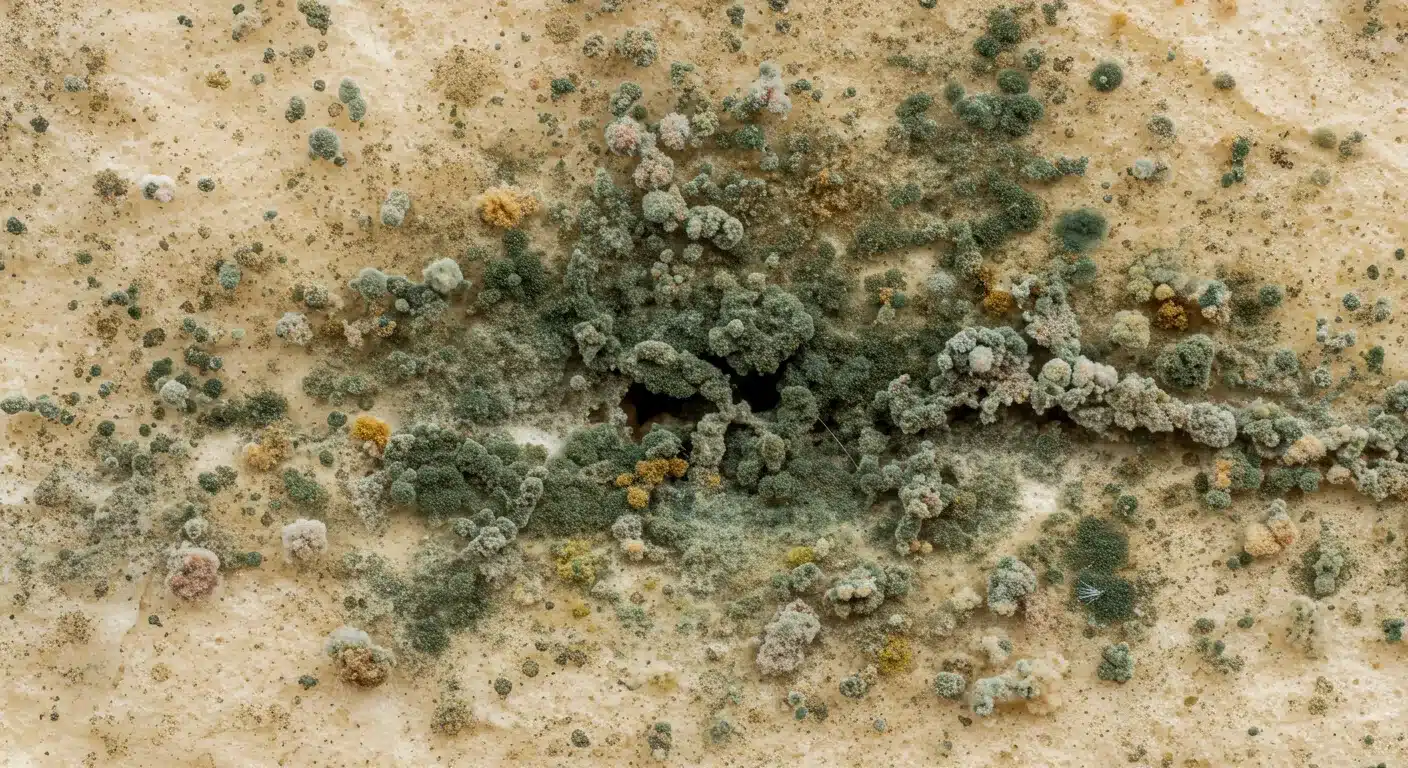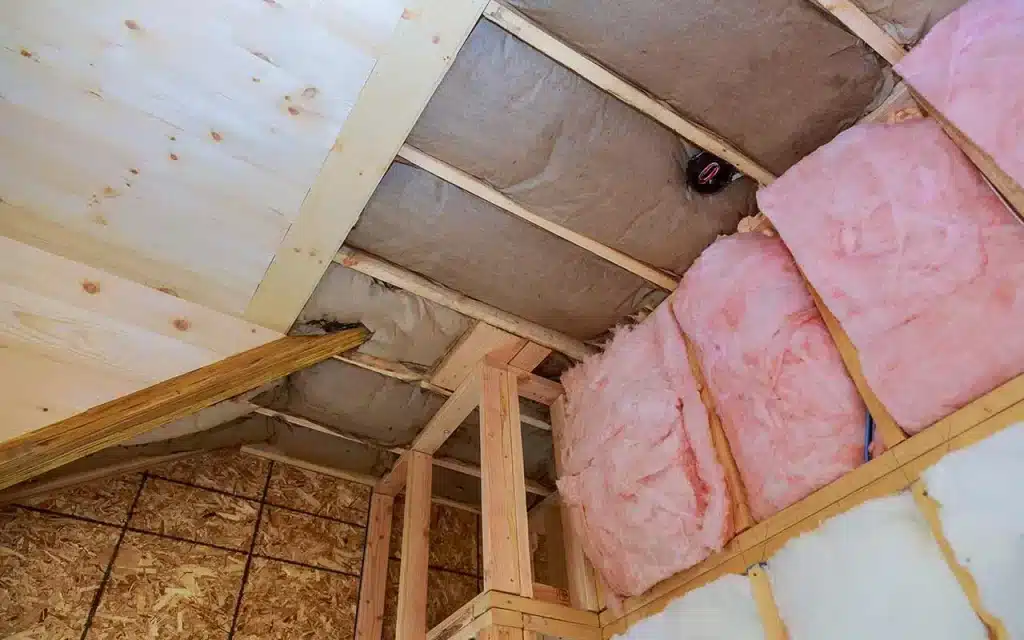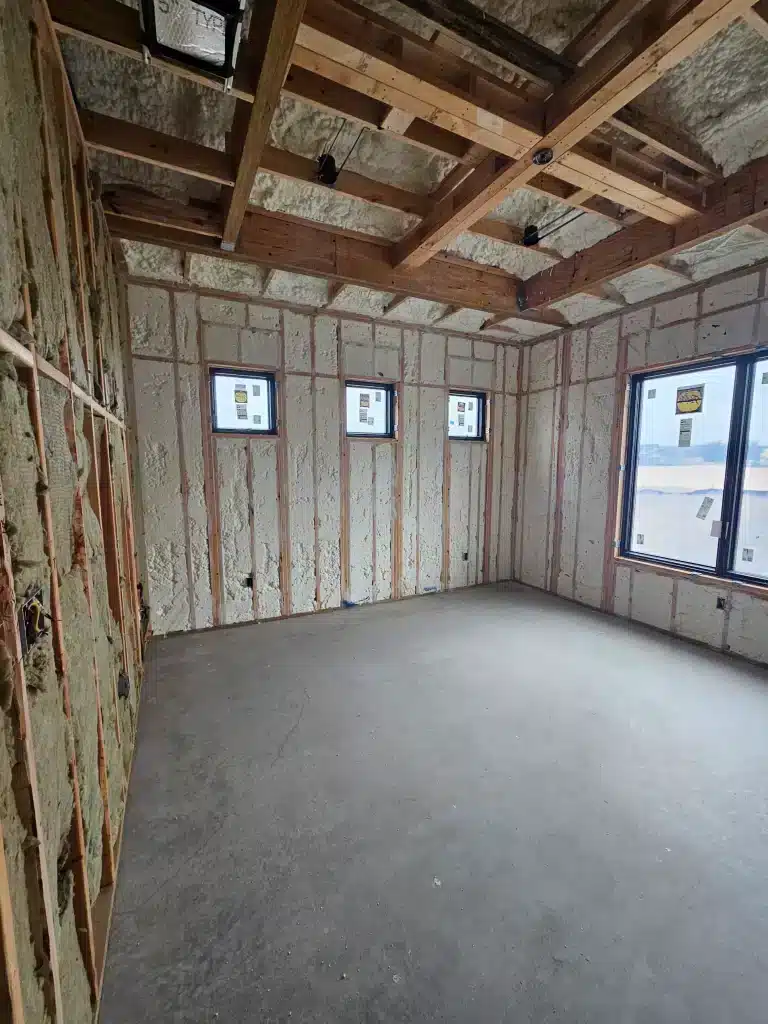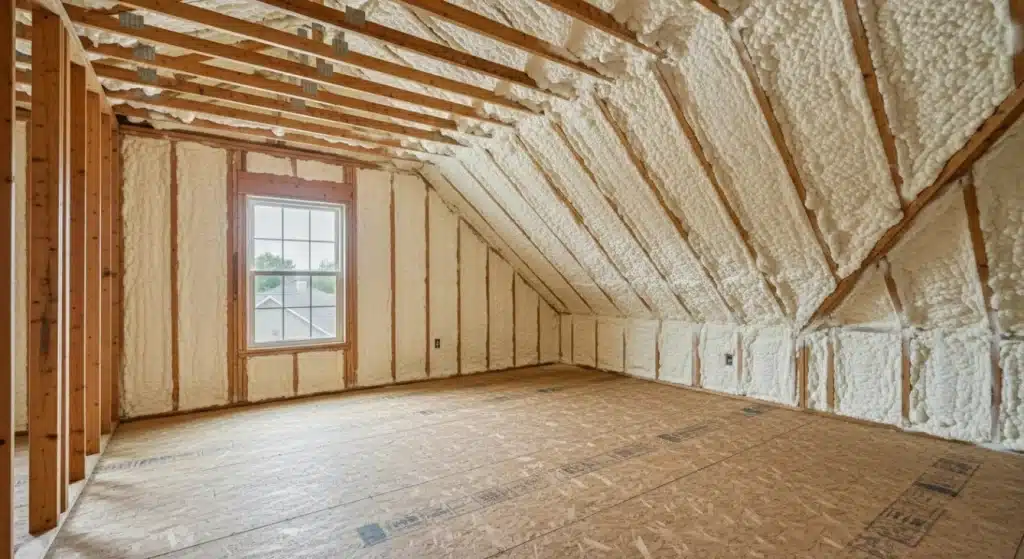Even in dry desert climates like Las Vegas, moisture can quietly seep into your home, leading to mold, musty odors, and even structural damage. It’s a common misconception that mold only grows in humid places. The reality? Condensation, air leaks, and uninsulated attics or crawl spaces can trap moisture where you least expect it.
The good news: Spray foam insulation can serve as both a thermal barrier and a moisture shield—protecting your home, health, and energy bill. Here’s how.
Why Moisture and Mold Are Still a Problem in Las Vegas
Las Vegas may not have high humidity, but that doesn’t make your home immune to moisture problems.
Here’s why:
- Air conditioning systems rapidly cool indoor air, causing condensation on ducts, windows, and walls.
- Older homes often have poor ventilation and insufficient air sealing, letting outside air leak inside.
- Crawl spaces, basements, and attics can trap stagnant air, turning into prime mold-growing zones.
Even small air leaks can pull in moisture-laden air, especially during summer nights when temperatures drop. Over time, that moisture builds up, and where there’s moisture, mold won’t be far behind.
How Spray Foam Insulation Works to Stop Moisture
Our Spray foam insulation services do more than keep your house warm or cool—it creates an air-tight, water-resistant seal that closes off the pathways moisture typically travels through.
Here’s how it works:
- Closed-cell spray foam is impermeable to water and acts as a vapor barrier.
- It expands into cracks, gaps, and crevices, sealing air leaks where condensation forms.
- It covers ductwork, attics, and crawl space walls, preventing humid air from contacting cool surfaces.
“Closed-cell foam insulation not only keeps air and temperature stable—it prevents water from sneaking in where it doesn’t belong.”
Comparing Spray Foam to Traditional Insulation for Mold Prevention
| Issue | Traditional Insulation | Spray Foam Solution |
|---|---|---|
| Moisture Buildup | Traps humidity | Blocks moisture & vapor |
| Mold Risk | High | Low (especially closed-cell) |
| Energy Efficiency | Moderate | Excellent |
| Longevity | 10–15 years | 25+ years with no degradation |
Traditional options like fiberglass or cellulose do a decent job with temperature, but they fall short in air sealing and moisture protection. Once they get wet, they retain water, lose effectiveness, and can quickly become moldy breeding grounds.
Spray foam, on the other hand, repels water and remains intact even in extreme Las Vegas heat.
Health Risks and Costs of Mold in Homes
You may not see the mold, but you’ll feel its effects. Mold can hide behind walls, in attics, or under flooring—especially if moisture is present.
Here’s what mold can do:
- Trigger allergies and asthma
- Damage drywall, wood framing, and insulation
- Lower your property value
Even worse, mold spores can circulate through your HVAC system, affecting the indoor air quality your family breathes every day.
Why Las Vegas Homeowners Choose Spray Foam
More and more homeowners in the Valley are upgrading to spray foam insulation—not just for comfort, but for peace of mind. Recent reports on the rising demand for energy upgrades highlight how Las Vegas residents are increasingly prioritizing insulation improvements that combine moisture control, energy efficiency, and long-term durability.
Key benefits include:
- Moisture and mold resistance
- Energy efficiency that lowers utility bills
- Improved air quality by sealing out dust and allergens
- Noise reduction in multi-level homes
- Ideal for attics, crawl spaces, garage ceilings, and new construction
Supreme Spray Foam Las Vegas helps local homeowners fortify their properties against heat, moisture, and mold—without major renovations. Recent spray foam insulation services expansion further extends their coverage to new areas, making professional insulation more accessible across the region.
Real Benefits You’ll Notice
With proper spray foam insulation, you’ll experience:
- Consistent indoor temperature
- No more musty smells or mold concerns
- Lower HVAC workload
- Lasting protection without maintenance
- Confidence in your home’s health
What’s the Difference Between Open-Cell and Closed-Cell Spray Foam?
- Open-cell: Softer, more flexible, better for soundproofing
- Closed-cell: Rigid, high R-value, superior moisture protection
For mold and moisture prevention in Las Vegas, closed-cell foam is the top choice.
Tips to Spot and Prevent Moisture Issues
- Look for condensation around AC ducts and attic vents
- Notice musty odors or recurring allergy symptoms
- Use a dehumidifier if you notice excessive moisture indoors
- Consider spray foam for areas prone to condensation (attics, rim joists, garages)
“Closed-cell spray foam acts as a one-two punch: It insulates and shields against moisture—without needing a separate vapor barrier.”
FAQ: Spray Foam and Mold Protection
How does spray foam insulation stop mold in Las Vegas homes?
By sealing air leaks and blocking moisture, spray foam removes the conditions mold needs to grow.
Why is mold still a risk in dry climates like Nevada?
Indoor humidity and condensation from AC systems create trapped moisture even in dry environments.
Which type of spray foam is best for mold prevention?
Closed-cell spray foam provides both insulation and a vapor barrier, making it ideal for mold defense.
Can I add spray foam to an existing home?
Yes. Many homes are retrofitted with spray foam in attics, crawl spaces, and wall cavities.
Is spray foam more expensive than fiberglass?
Yes upfront, but it saves money long-term by preventing damage, lowering energy bills, and lasting longer.

